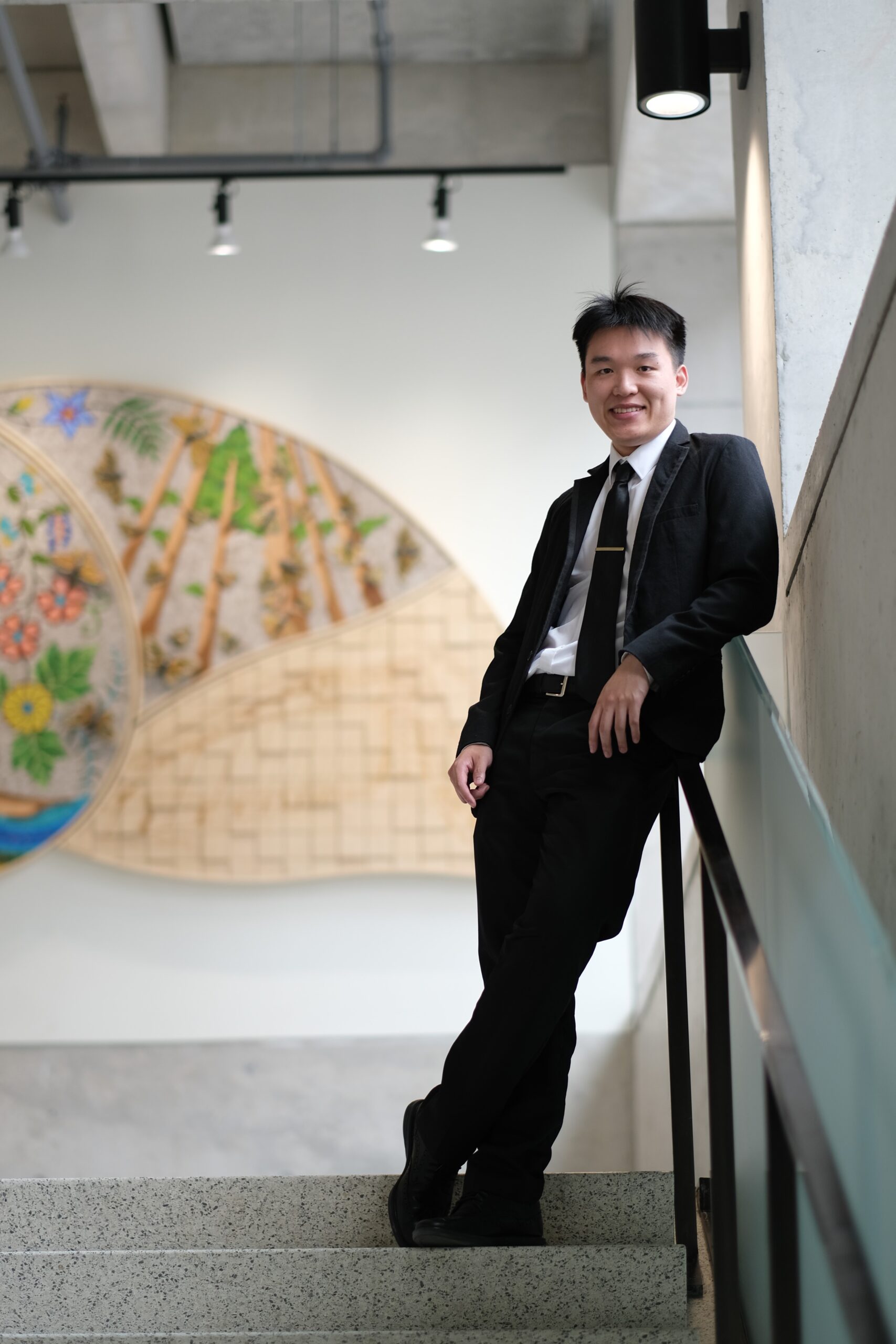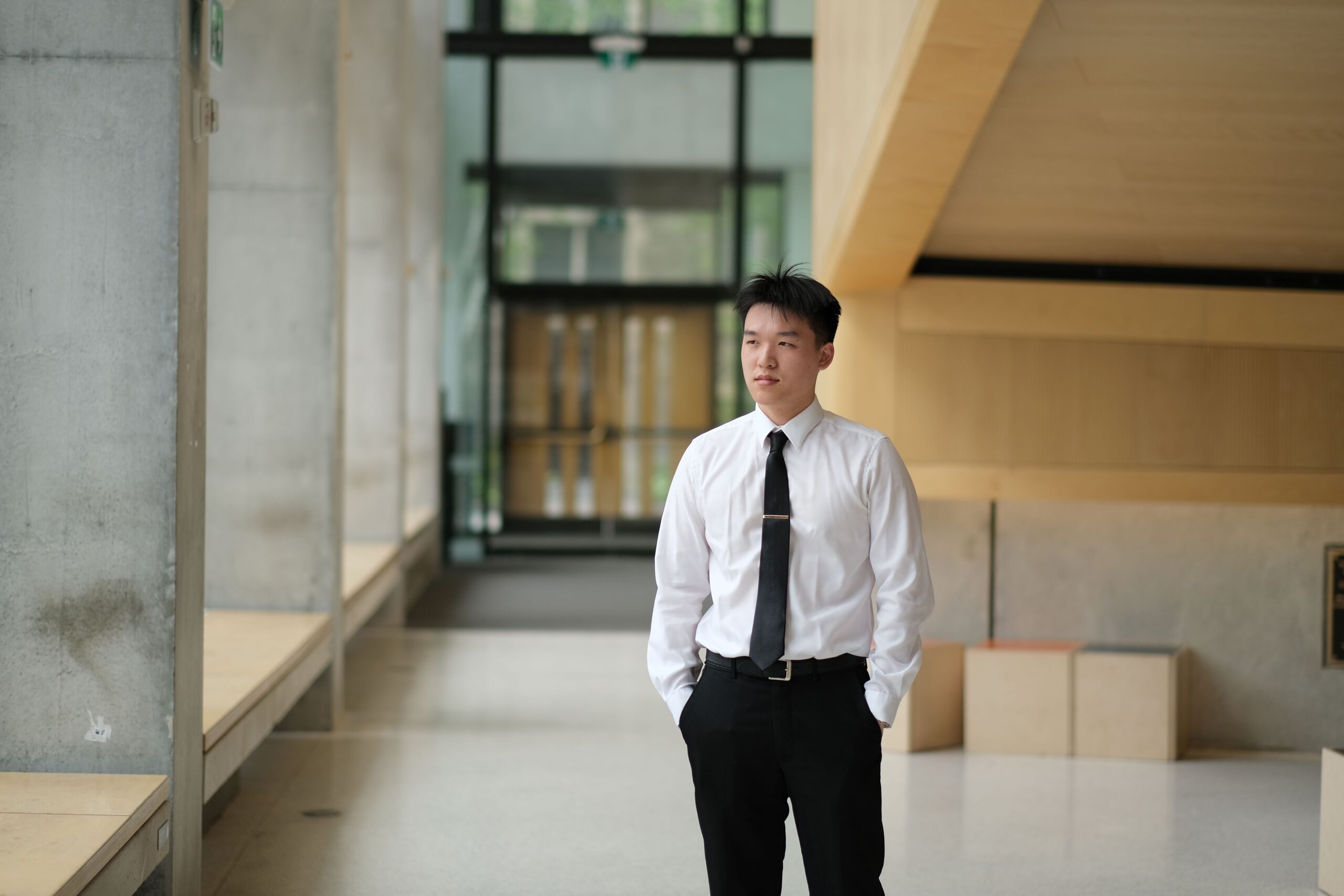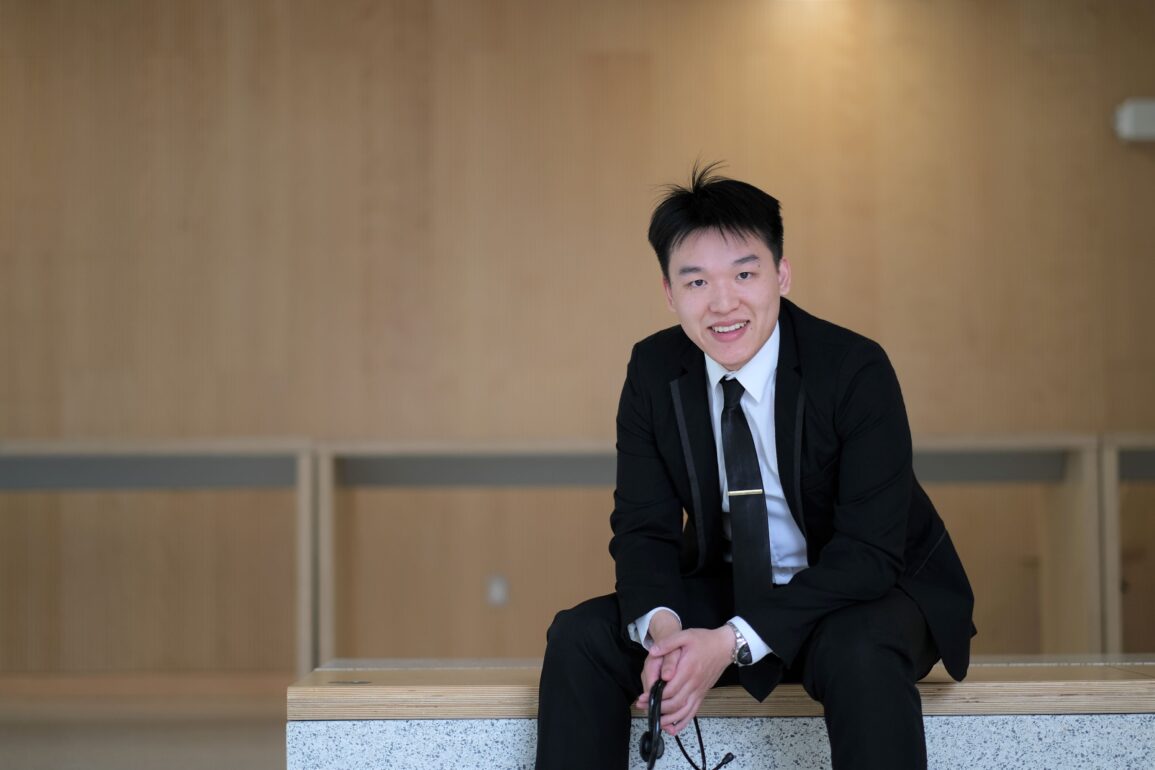Meet Ronald Chow, a recent graduate from the MEng program at BME. Now, as a full-time medical student, Ronald is delving into the intersection of artificial intelligence, medicine, and engineering. His unique background allows him to explore innovative approaches in healthcare, leveraging AI technology and engineering principles to enhance patient care and advance medical research.
What’s your day-to-day like as a student registered in two graduate programs?
I started my journey as a medical student at the University of Toronto in September 2021. After a few months, I came across an opportunity to apply for a part-time master’s program starting in January 2022. Our medical school curriculum included a protected day each week for students to pursue their interests. I decided to utilize that day for my master’s program, attending classes and completing homework on weekends. It was initially challenging to balance both medical school and the part-time program, as I had to squeeze everything into a tight schedule. However, I have gained a lot of valuable knowledge and experience from this journey.
My day-to-day life is quite busy. During the program, my weekdays are filled with lectures and teaching sessions at the university and hospitals, except for the one day off we have each week. When I return home in the evenings, I spend time reviewing concepts and preparing for the next day. Additionally, I have a research job which I work on during evenings and weekends. My responsibilities involve contributing to research projects and working toward publication. So, my typical routine can be summarized as being a medical student from 9 to 5, focused on learning and becoming a future doctor and engaging in research as a side commitment during my free time.

What types of valuable skillsets were you able to carry over from your MEng program?
Participating in the program has provided me with a greater understanding of the intersection between devices, technology, and medicine. I’ve developed an appreciation for the advancements we’ve made, such as the implantable cardioverter-defibrillator (ICD) and insulin pumps, and I’m excited about the future possibilities, particularly in software. This experience has expanded my perspective on the potential for progress in medicine beyond what I already knew, which primarily focused on drug development.
One aspect of the program that stands out to me is the opportunity to work with people from engineering backgrounds. Collaborating with them has taught me a different approach to teamwork and communication compared to my previous experiences in the sciences. The emphasis on setting objectives, meeting deliverables, and breaking projects into phases has been particularly valuable. It has become second nature to us, but I’ve realized that it’s not commonly taught in other disciplines.
Overall, this program has not only enhanced my technical knowledge but also equipped me with important skills for working in multidisciplinary teams and approaching projects with clear objectives.
What are some cool projects you are working on right now?
I’m really proud of a recent research project I worked on. We focused on using artificial intelligence to screen patients at a cancer center and determine their eligibility for clinical trials. In our review article, we assessed the AI’s ability to accurately identify and exclude patients from trials, comparing it to human performance. We found that AI was not only equal to or better than humans in identifying missed cases, but it also operated at a rapid speed without fatigue or error.
What excites me about this research is the potential for it to revolutionize the way clinical trials are conducted. We published our findings in a prestigious journal, the Journal of the National Cancer Institute, which further validates the significance of our work. I believe these findings represent a paradigm shift in the future of clinical trials, driven by technology and the knowledge I gained in my classes.
Implementing AI in screening patients could lead to substantial improvements in workflow and resource allocation. By automating certain tasks, we can free up human capital to focus on other critical areas. This has the potential to enhance our overall productivity and enable us to tackle multiple tasks simultaneously.
I’m particularly proud of my team’s contribution to this project. Our work has the potential to shape the field for the next 10 to 15 years, bringing about positive changes in how we conduct clinical trials. It’s a significant achievement that fills me with pride and optimism for the future.
How do you think the role of a physician will evolve in the AI age?
I believe that the field of clinician decision support tools, which focuses on supporting clinicians in their decision-making process, is still in the early stages of development and not heavily reliant on AI yet. Privacy concerns related to accessing patient data pose a challenge in this area. However, when it comes to screening patients for clinical trial enrollment, AI has the potential to revolutionize the process. AI can rapidly screen every patient who comes in, freeing up human research coordinators to focus on approaching eligible patients for the informed consent process.
While AI can handle the initial screening, the human touch is still crucial in obtaining informed consent. Patients need human interaction to truly understand the details and implications of participating in a clinical trial. Despite advancements in technology, there is a level of trust and comfort that comes from human-to-human interaction. It allows for shared dialogue, building understanding, and establishing trust between the patient and the healthcare provider.
In my field of medicine, the importance of human interaction is twofold. First, it involves providing medical treatment to patients, but it’s also about supporting and comforting them throughout their medical journey. Sometimes, emotional support and human connection are just as important as the medical treatment itself. The human touch will always be necessary for medicine to address the emotional needs of patients and establish a trusting relationship.
What do you enjoy the most about being a medical student?
I am fascinated by the interplay between clinical medicine and academic research. It’s inspiring to witness how clinicians are motivated to pursue research projects and then work towards executing and implementing them, which I have been fortunate to be involved in. Seeing how these projects can ultimately influence and improve clinical practices is a circular and captivating process.
As a trainee, I have mostly observed and participated in small portions of projects, but even that has been incredibly interesting to me. Within a relatively short time frame of 10, 20, or 30 years, there is an opportunity to make a positive impact on future patients and enhance healthcare for tomorrow’s generation compared to today’s. However, this pursuit comes with its own set of challenges.
Personally, I have been fortunate to be involved in areas such as epidemiological methods and exploring AI applications, both of which are uncharted territories. While looking back in retrospect, it may seem obvious how to approach these fields, living in the present involves a significant amount of uncertainty, which can be stressful. There is always the risk of spending several months heading in the wrong direction, only to realize the need to backtrack to the starting point. The path is not always linear, and there may be times when it feels like hitting a dead end. But I believe that is the price one must pay to be at the forefront of their chosen field and explore new frontiers.
How do you stay up to date with the newest advances in science, technology, and its intersection with medicine?
I find that my favorite way to stay up to date is through reading. As a medical student, I have a lot to learn about different diseases, so reading medical journals helps me keep abreast of the latest advancements and research in my field. Specifically, in oncology, I’m interested in learning about new immunotherapies and emerging risk factors. This type of reading allows me to understand how the field is developing and evolving.
In addition to medical journals, I also enjoy reading technical aspects related to my job. This includes epidemiological journals and digital health journals, where I can explore the newest research methods and tools being developed and how they are applied. I have noticed that there is often a cross-pollination of ideas between these different types of readings. For example, I have come across fascinating epidemiological methods in the mid-2010s that were not yet being applied in the medical realm. It inspires me to bridge the gap and bring those methods into the medical space.

What advice would you offer to current students who are thinking about pursuing medical school, with an AI specialty?
I believe that developing quantitative skills is crucial for success in my career. Even though I haven’t yet settled on a specific specialty, I aspire to become a clinician scientist. Therefore, I have been focusing on acquiring skills in statistical analysis for clinical trials, observational studies, and systematic reviews. Additionally, I have delved into coding for AI development, particularly in natural language processing. These quantitative skills are transferable and adaptable, regardless of future specialty choices or potential career reinventions every few years. I have pursued two master’s degrees with the goal of building strong quantitative skills (Master of Science in Public Health from Yale University, and Master of Engineering from the University of Toronto), which I consider invaluable assets for my career.
The knowledge and skills I have gained from my studies, such as AI and epidemiology, have proven to be applicable and beneficial across different research jobs. While the specific fields may differ, the core skills I have acquired in these areas have provided a strong foundation. Employers/supervisors often inquire about my ability to perform specific analyses, and having these quantitative skills sets me apart and enables me to contribute effectively to various research projects.


